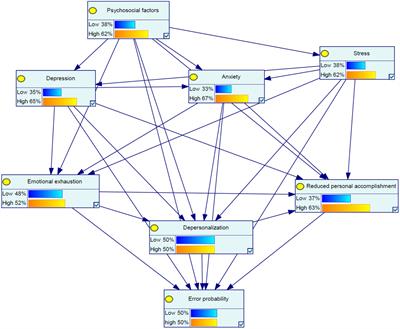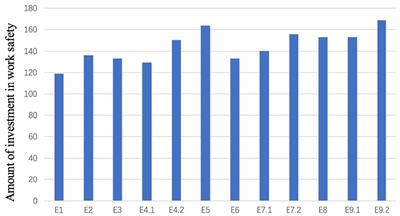ORIGINAL RESEARCH
Published on 08 Oct 2024
Sensitivity analysis of human error in the steel industry: exploring the effects of psychosocial and mental health risk factors and burnout using Bayesian networks

doi 10.3389/fpubh.2024.1437112
- 594 views
546
Total downloads
2,700
Total views and downloads
You will be redirected to our submission process.
ORIGINAL RESEARCH
Published on 08 Oct 2024

ORIGINAL RESEARCH
Published on 07 Feb 2024

